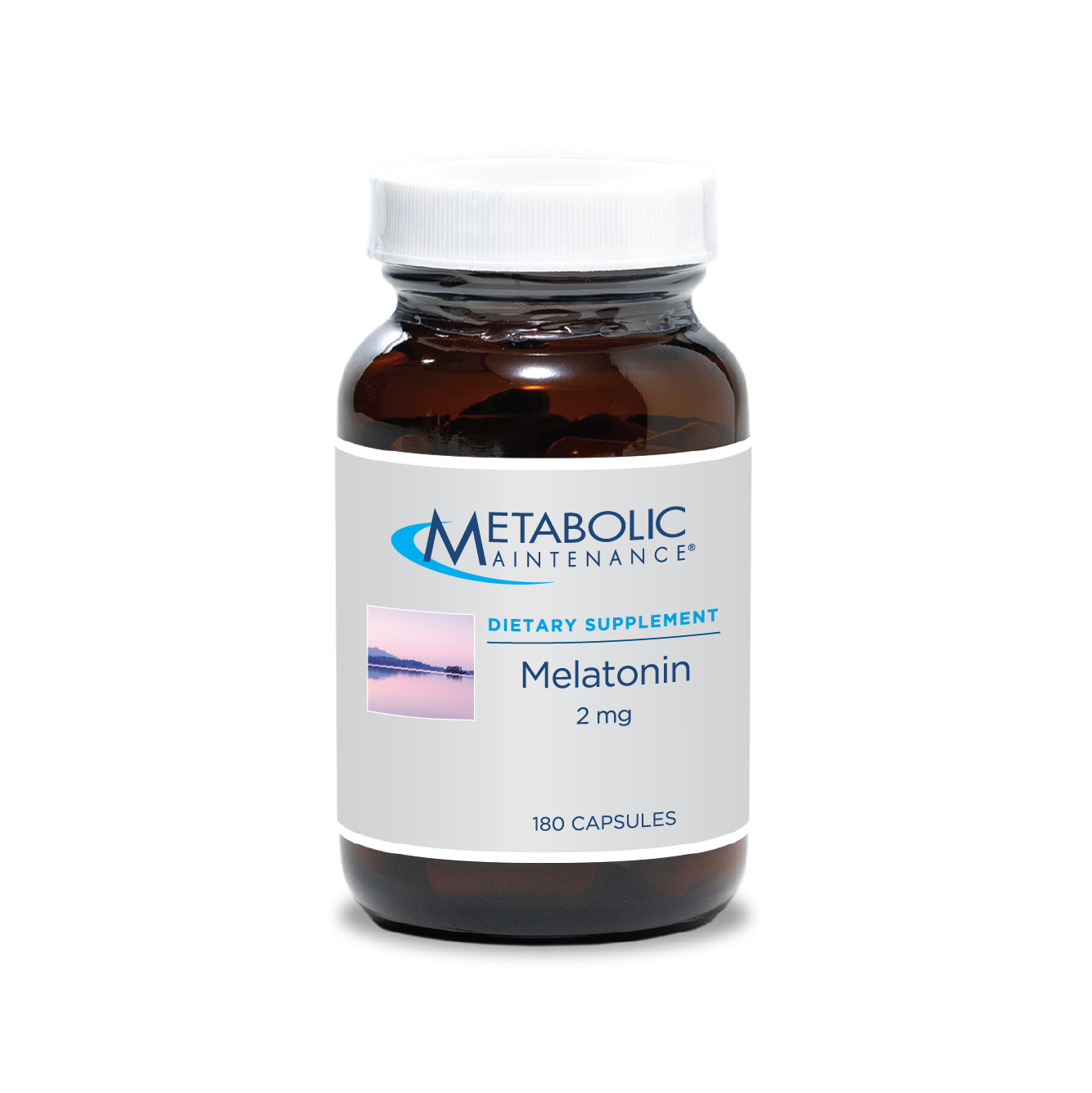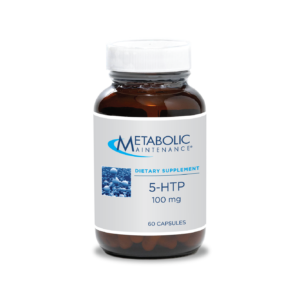Description
Each size 3 vegetarian cellulose capsule contains:
| Melatonin | 2 mg |
| Glycine | 210 mg |
Other ingredients: vegetarian cellulose capsule
Description: The naturally occurring pineal hormone, melatonin, is involved in the circadian regulation and facilitation of sleep, the inhibition of cancer development and growth, and the enhancement of immune function [1].
Uses: Some studies suggest that a shortened duration of nocturnal sleep is associated with immune suppression and a higher risk of disease [1]. Presently, scientific evidence is accumulating to support melatonin supplementation as a useful aid in achieving restful sleep for patients with some types of insomnias and circadian rhythm sleep disorders (CRSDs) [2]. Insomnia and CRSDs, whether chronic or transient, affect a wide range of individuals, including many adults of advanced ages, those with severe visual impairments, shift workers, and travelers moving across many time zones. A feature common among CRSDs and some forms of insomnia is sensitivity to the hormone melatonin, which is secreted naturally by healthy, normal pineal glands during periods of darkness [1, 2]. Clinical data suggest that exogenous melatonin may help to regulate the circadian clock located in the suprachiasmatic nucleus of the hypothalamus [2]. As the circadian clock is involved in autonomic cardiovascular regulation, nighttime melatonin intake has also been shown to help regulate blood pressure [3].
Outside of the pineal gland, gastrointestinal tissue contains the highest concentrations of naturally occurring melatonin [4]. There, melatonin has been demonstrated to prevent ulcerations of gastrointestinal mucosa by an antioxidant action, reduce secretion of hydrochloric acid, stimulate the immune system, foster epithelial regeneration, and increase microcirculation [4].
Melatonin can also be secreted naturally by other tissues including retina, Harderian glands, gut, ovary, testes, bone marrow and lens, suggesting its importance in the function of these tissues [5]. Several studies have shown that melatonin reduces chronic and acute inflammation, and as a consequence, melatonin improves the clinical course of illnesses which have an inflammatory etiology [5]. The immunomodulatory properties of melatonin are well known; it acts on the immune system by regulating cytokine production of immunocompetent cells, reduces adhesion molecules and pro-inflammatory cytokines and modifies serum inflammatory parameters.
Melatonin is also both a direct and indirect antioxidant, scavenging free radicals, stimulating antioxidant enzymes, enhancing the activities of other antioxidants or protecting other antioxidant enzymes from oxidative damage [5]. Moreover, recent studies have implicated melatonin as a neuroprotective molecule in neurodegenerative disorders where brain oxidative damage has taken place [5].
Source Materials: Melatonin is made by chemical synthesis. Cellulose for capsules is derived from softwood tree pulp. All ingredients are vegan and non-GMO.
Allergens: According to information provided by our suppliers, these capsules are free of the eight major allergens as identified by the Food Allergen Labeling and Consumer Protection Act of 2004 (FALCPA): Wheat (gluten), eggs, milk, soybeans, fish, shellfish, peanuts, tree nuts.
Recommendations: Use as directed by a healthcare professional.
Precautions: Pregnant or lactating women and individuals taking prescription medications should consult with a healthcare professional before taking any supplement.
References:
- Blask, David E. “Melatonin, sleep disturbance and cancer risk.” Sleep medicine reviews 13.4 (2009): 257-264.
- Turek, Fred W., and Martha U. Gillette. “Melatonin, sleep, and circadian rhythms: rationale for development of specific melatonin agonists.” Sleep medicine 5.6 (2004): 523-532.
- Scheer, Frank AJL, et al. “Daily nighttime melatonin reduces blood pressure in male patients with essential hypertension.”Hypertension 43.2 (2004): 192-197.
- Esposito, Emanuela, and Salvatore Cuzzocrea. “Antiinflammatory activity of melatonin in central nervous system.” Current neuropharmacology 8.3 (2010): 228-242.
- Bubenik, George A. “Gastrointestinal melatonin: localization, function, and clinical relevance.” Digestive diseases and sciences 47.10 (2002): 2336-2348.
*These statements have not been evaluated by the Food & Drug Administration. These products are not intended to diagnose, treat, cure or prevent any disease







Reviews
There are no reviews yet.